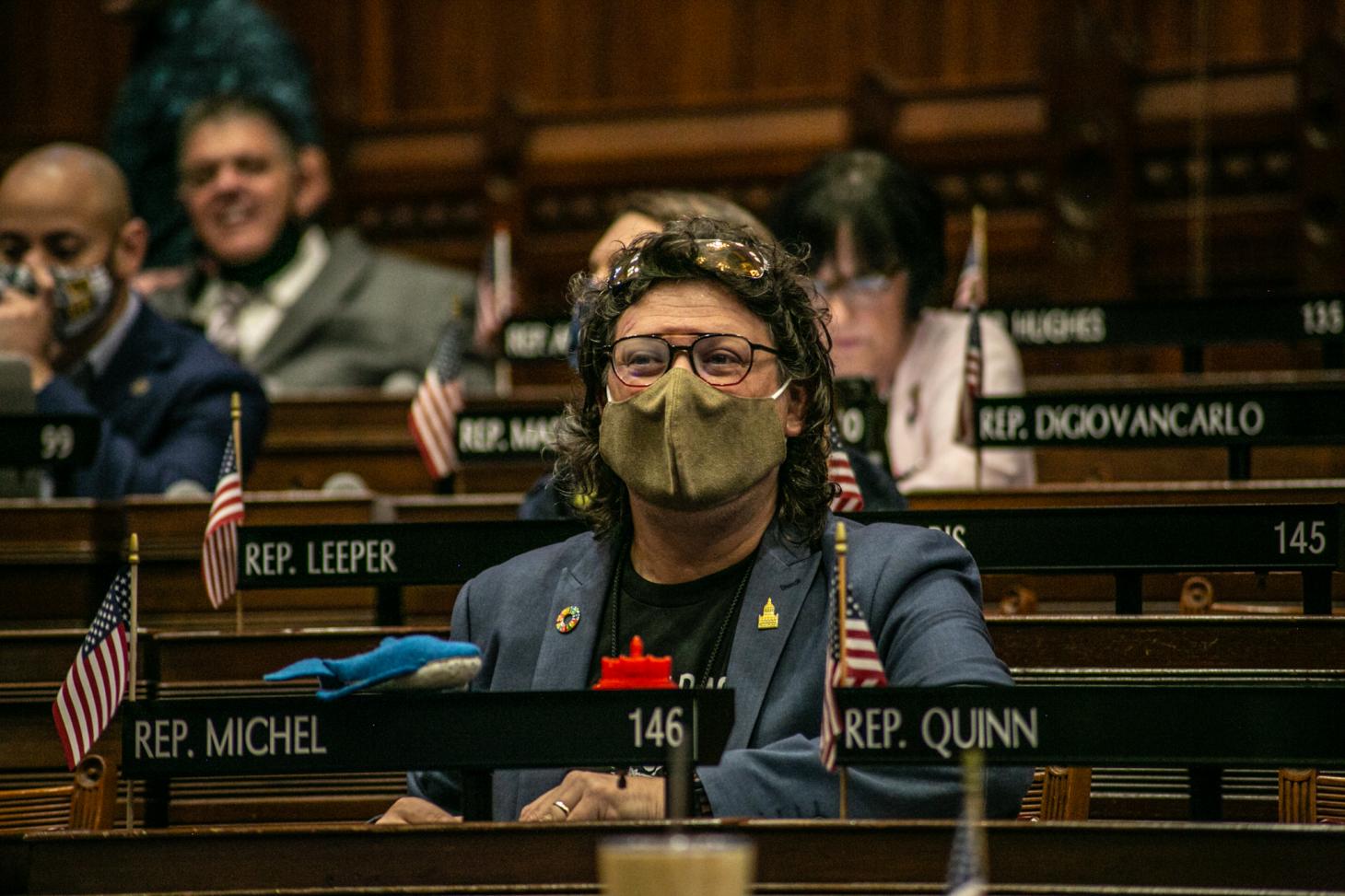HB 6442: From schools to jobs to meetings, most of our lives moved online over the last year – exposing the extreme inequities in broadband access and the need to bridge the digital divide. HB 6442 will work to address these inequities and provide reliable broadband access across our state.
SB 989: One in four Americans have experienced online hate and harassment, but Connecticut’s statutes regarding stalking and harassment have not kept pace with technology. SB 989 will update Connecticut's laws to combat online harassment and protect those subject to it.
SB 1008: Pulse oximeters are valuable tools that can help diagnose conditions like asthma, lung cancer, and others. However, they are 3 times more likely produce inaccurate readings when used on individuals with darker skin. SB 1008 would inform health care providers, pharmacies, insurers, and others that these devices can be inaccurate when used on people of color. It also prohibits insurers from denying benefits coverage based on blood oxygen levels measured by a pulse oximeter. By bringing attention to this weakness, we can help improve health outcomes and care.
SB 1037: With recent and proposed changes to the state's waste management, Connecticut's recycling program is ready for reform. Commonly known as the "bottle bill," SB 1037 will make changes to increase the redemption and recycling rates for bottles and cans to save our communities money and protect our environment. It will also invest in redemption centers to make recycling more convenient and viable.
SB 927: Sewage spills can harm our waterways and contaminate public drinking water or swimming areas. SB 927 would establish a system enabling Connecticut residents to be notified of sewage spills. Residents should have the right to know when there's a public health risk.
SB 975: Many of the privileges we enjoy at home are denied to Connecticut's long-term care facility residents. SB 975 strengthens the nursing home patients' bill of rights so residents may treat their living space as their home, protecting their rights to privacy, health, and safety. Every resident deserves the safety and security of a home-like environment.
HB 6587: Epinephrine cartridge injectors, such as EpiPens, are lifesaving tools for individuals with life-threatening allergies, however high prices keep these devices out of reach. EpiPens can cost up to $700, leading consumers to hang on to long-expired epinephrine injectors or forego them altogether. HB 6587 would cap the cost at $25 and require health carriers to include at least one covered epinephrine injector on its lowest cost-sharing tier for certain insurance plans.
SB 56: No one should be denied employment because of their age, yet studies have found that 60 percent of workers over 45 have experienced or seen age discrimination. SB 56 would strengthen protections against age discrimination by prohibiting employers from asking job applicants their age, date of birth, and graduation date.
SB 660: Over this past year, our health care providers served on the frontlines working tirelessly to ensure the health and safety of our communities – often facing the darkest moments of the pandemic and witnessing untold traumas. Many of our first responders are now suffering from anxiety, PTSD, and other lasting mental health and emotional impairments. SB 660 will expand Workers' Compensation to better support first responder's mental and emotional health in the aftermath of the pandemic.
SB 1011: Opioid antagonists, like Naloxone or Narcan, and EpiPens save countless lives, rescuing individuals from an accidental overdose or a severe allergic reaction respectively. SB 1011 will require police officers, who are often the first responders to a scene, to carry and effectively administer these life-saving medications.
SB 1059: Solitary confinement causes irreparable harm, leaving individuals to suffer from damaging and often life-long psychological effects. While only a step towards reform to our system, SB 1059 limits the practice of solitary confinement at Connecticut's correctional facilities, in addition to increasing transparency and accountability within the correctional system. |
|

